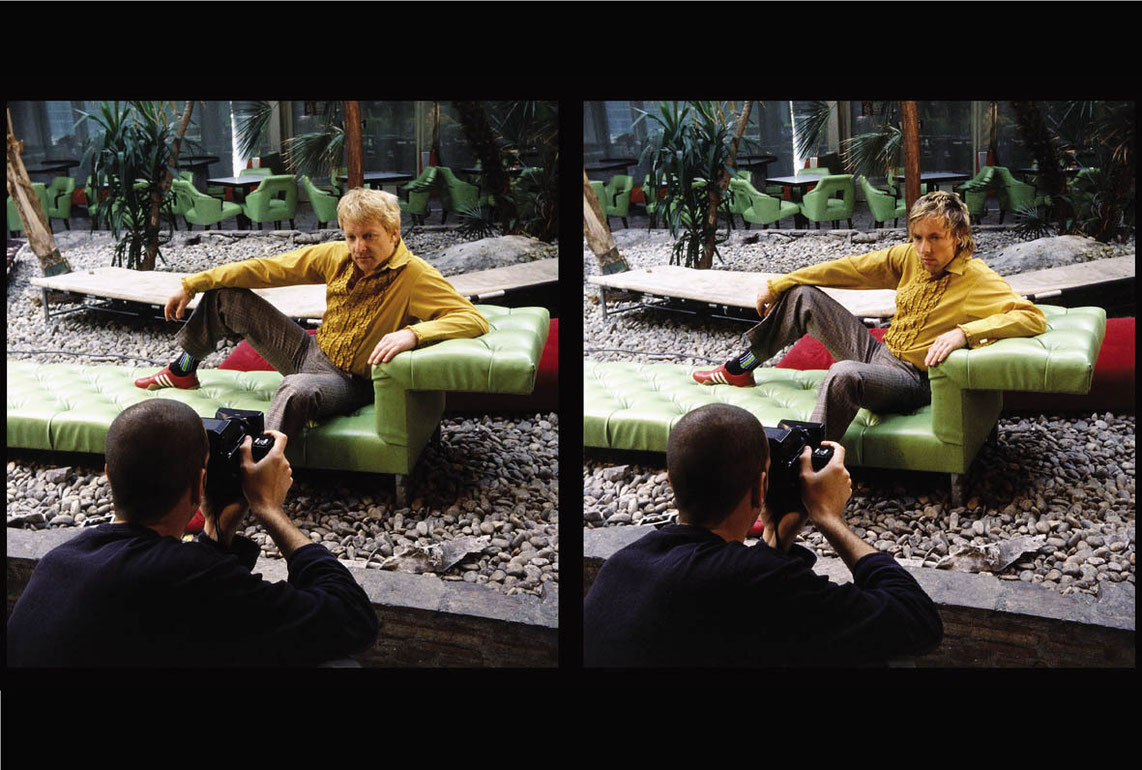twotiming
Two eyes can see more than one. Two eyes see double, but not entirely. This principle was put to good use in the stereoscope, an optical device meant to entertain the viewer by showing two almost identical photographs of the same scene simultaneously, thereby creating the illusion of three dimensions. Oliver Hangl´s music video twotiming is reminiscent of such stereoscopic cards: Hangl juxtaposed two sets of moving images on a screen to accompany a track by MIKA. The scenes, showing a series of performances, are only seemingly identical. The setting, the actions and the extras are the same in both, but the main character is different. The performers introduce minor deviations and asynchronicities to the pleasant game with poses and subjects common to pop culture and video clips, an imperfect duet of two determined amateurs who sing, dance, or are just tired. twotiming progresses from a pair of scenes to a "spot the difference" picture puzzle. "I will introduce you to the other side," promises MIKA on the soundtrack (and in stereo). The viewer´s eyes begin to wander. At some point the right-hand performer is kissed away rather than kissed awake. The extent of the difference grows from the similarity (or dissimilarity) of the two pictures into the scenes themselves, as the secondary characters are apparently unconcerned by the disappearance of their counterpart. The viewer is forced to close the gap until the final fade-out gently releases the remaining doppelgänger.
(Isabella Reicher)
Translation: Steve Wilder
twotiming
2003
Austria
5 min

